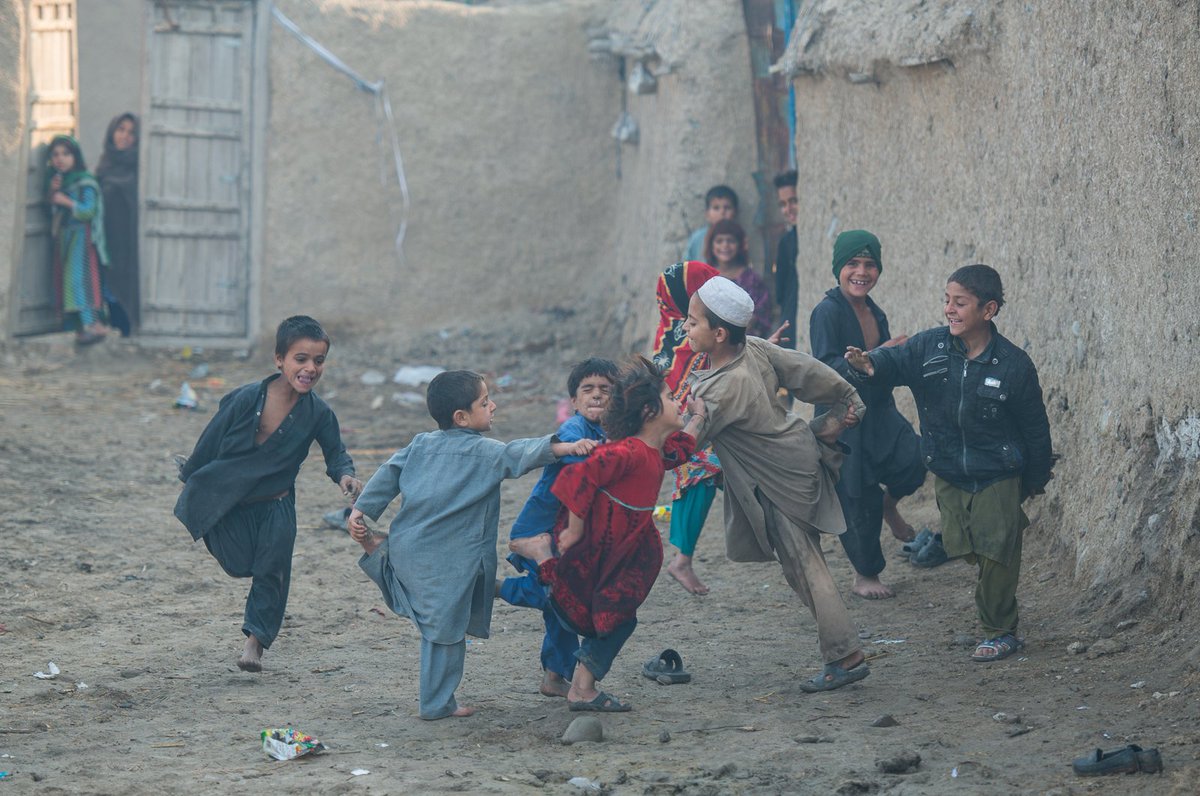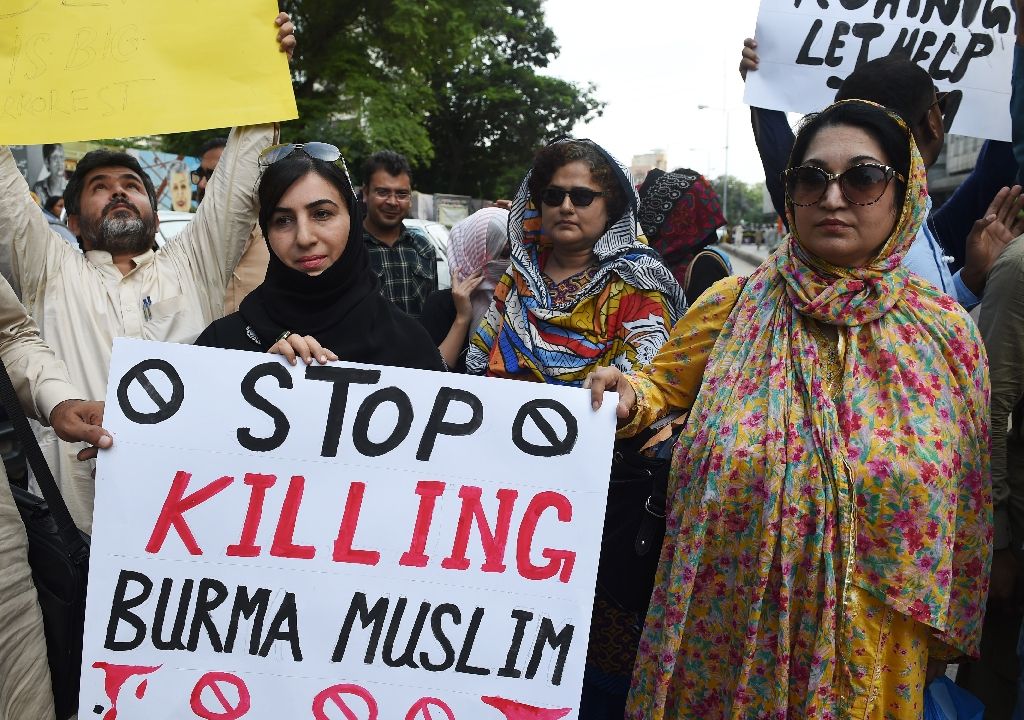Prime Minister Imran Khan’s proposal to grant citizenship to Pakistan-born Afghans and Bengalis is unlikely to gain required acceptance in the country to become a serious policy option, but it has certainly triggered a much-needed debate on an issue that encompasses both security and humanitarian aspects to it.
This issue became a topic of discussion in Pakistan’s parliament, media, and bazaars as well as in many world capitals and international organizations, especially those concerned with human rights. Pakistan was suddenly seen under a positive light and its prime minister was praised for boldly highlighting an issue that was long been sidelined.
However, raising an issue and bringing it into the limelight is one thing and getting it resolved is another; in Pakistan, due to the polarized state of its society, reaching a consensus on contentious issues is well-nigh impossible, and even more so if the matter has ethnic connotations and political ramifications.
Prime Minister Imran Khan did just that by highlighting this issue but the debate that has been triggered will unlikely to continue for long, neither will it lead to any workable solution.
One doesn’t know, if Prime Minister Khan, knew about the kind of coverage his statement on citizenship would get in the media. However, he would have realized by now that every word uttered by him as prime minister could become headline. He has to be careful with words as he is no longer an opposition leader who could say anything and get away with it.
It is an experience that should serve him well, as backtracking after having made a categorical statement, could be embarrassing. Besides, his government doesn’t have a decisive majority in the parliament and is dependent on the support of small political parties who have their own agenda behind supporting any legislative work.

The Prime Minister’s hands are bound by political compulsions; as allies have to be kept amused and foes dealt skillfully. Prime Minister Imran Khan made his widely reported statement offering citizenship to Afghans and Bengalis on September 17, 2008, during a visit to Karachi.
It was his first trip to the country’s most populous city, after taking oath as prime minister on August 18, nearly a month after Pakistan Tehreek-e-Insaf (PTI)’s victory in the general election. The issue on hand was Karachi’s law and order situation when the premier made his remarks while referring to the “growing underclass” of a large number of Afghan and Bengali refugees lacking basic rights despite living in the city for decades.
Pleading their case for citizenship, he was quoted saying that they lacked legal rights and were unable to seek jobs in the absence of official documentation. He made a linkage between their illegal stay and drift towards crime due to high levels of unemployment and felt the issue needed to be resolved by enabling them to obtain Pakistan’s national identity cards and passports.
Read more: Afghan Refugees in Pakistan: A Continuing Challenge
The place and the context in which the prime minister made his case for granting citizenship to the Afghans and Bengalis born in Pakistan and living here for three to four decades, was quickly forgotten; as the issue became hot news and gave the controversy-loving media a topic to fill time and space.
No effort was made to make the distinction that Imran Khan was specifically talking about the Afghan refugees and Bengalis living in Karachi. It is true a policy once made about a particular issue, which in this case was the presence of long-suffering, stateless human-beings, could be extrapolated to the whole country in due course.
This would prompt similar claims by Pakistan-born Afghans, Bengalis, Rohingya and others living in different parts of Pakistan. However, most of the politicians and analysts who critically discussed the prime minister’s statement continued to consider it as a major policy statement meant for all of Pakistan and not for Karachi alone. The reaction was quick and critical.
This issue became a topic of discussion in Pakistan’s parliament, media, and bazaars as well as in many world capitals and international organizations, especially those concerned with human rights.
Baloch and Sindhi nationalists condemned any move to grant citizenship to non-citizens; they argue they should be sent back to the countries of their origin. The political parties claiming to represent these ethnic groups, as well as those championing the cause of the Urdu-speaking Mohajirs, interpreted it as an attempt to bring a demographic change in their cities and provinces.
Others claimed it was aimed at obliging a substantial number of non-Pakistanis and forever getting their votes in future elections. In particular, the idea of offering citizenship rights to Afghan refugees was vehemently opposed as they happen to be overwhelmingly Pashtun; together with local Pashtun communities, they could tilt the demographic balance to the disadvantage of Sindhis and Mohajirs in Sindh and the Balochis in Balochistan.
This perhaps was the reason why there wasn’t much opposition to citizenship for Bengalis, who apparently include Rohingya people; forcibly evicted over the years from Myanmar, as their numbers are small compared to the Afghan refugees and, therefore, manageable.

Though the exact number of Bengalis in Karachi, or in the rest of Pakistan, isn’t documented, they aren’t present in significant numbers anywhere to bring any demographic change, in a big city like Karachi or invulnerable provinces such as Sindh and Balochistan. The criticism Imran Khan faced wasn’t unexpected.
Those critical of his citizenship statement have held long-standing position on issues concerning Afghan refugees; they believe who are involved in crimes or have been part of the mujahideen and Taliban groups that have waged war in neighbouring Afghanistan for years.
In their opinion, good riddance should be the policy in the context of the Afghan refugees, as most of them are battle-hardened with extremist views. Keeping them in Pakistan any longer, or forever if granted citizenship, could have serious consequences. Far more worrying for the Prime Minister and his party was the backlash by their own allies.
It is true a policy once made about a particular issue, which in this case was the presence of long-suffering, stateless human-beings, could be extrapolated to the whole country in due course.
All complained they weren’t consulted, though it seems doubtful if Imran Khan, known for speaking his mind; made consultation even with his own aides or other important stakeholders, such as the military high command or the provincial governments. Two chief ministers publicly opposed the move and the other two didn’t have much of a choice as they belonged to PTI and had to support their party chairman.
The opposition by Murad Ali Shah, Sindh’s Chief Minister from PPP, was understandable as he belongs to an opposition party and represents a province that has always been overwhelmed by internal migration from other provinces and would have to bear more burden if the Afghans and Bengalis were given citizenship rights and allowed to settle permanently in a metropolis like Karachi offering tremendous opportunities to find jobs and establish businesses.
The opposition voiced by Balochistan Chief Minister Jam Kamal Alyani also wasn’t surprising; even though the Balochistan Awami Party (BAP), that he is heading since its creation on the eve of the July 25 general election is an ally of the PTI. The BAP has to compete with the Baloch nationalist parties and the separatists for support among the Baloch people and making any compromise on the issue of Afghan refugees could be politically suicidal.
Read more: Death in Afghanistan or bitter life in Pakistan: refugees’ choice
Like all the other Baloch-centered parties, the BAP also wants repatriation of all Afghan refugees from Balochistan and Chief Minister Alyani used the occasion to repeat the demand. The strongest reaction to the prime minister’s statement came from Sardar Akhtar Jan Mengal, the former chief minister heading the Balochistan National Party-Mengal (BNP-Mengal), which is an ally of the PTI.
He spoke in and outside the National Assembly, where he staged a walkout and reminded Imran Khan that the six-point agreement that their two parties signed when finalizing their alliance contained a point concerning the repatriation of Afghan refugees. Mengal hasn’t broken the alliance yet because the PTI government has yet to take any step to start working on the prime minister’s citizenship awarding statement, but it appears he would go to any extreme if this was to happen.
The question of Afghan refugees in Balochistan has caused polarization as the Baloch, fearful of becoming a minority in a province named after them, want them out, while many Pashtuns due to their common ethnicity would not mind if they stay as long as they want.

The polarization could increase if the issue of Afghan refugees is decided without taking into consideration the views of the majority of Baloch and Pashtuns. The prime minister’s statement received backing from unexpected quarters.
The religiopolitical parties, which in most cases are led by Pashtun clerics; and Pashtun nationalists, who are secular, support offering citizenship to Afghan refugees. They avoided giving credit to Imran Khan for the move because they hate him; after having suffered defeat at the hands of PTI twice in Khyber Pakhtunkhwa in 2013 and 2018 elections.
The Jamaat-i-Islami led by Sirajul Haq, Maulana Fazlur Rehman’s Jamiat Ulema-i-Islam-Fazal (JUI-F) and Maulana Samiul Haq’s smaller Jamiat Ulema-i-Islami-Sami (JUI-S), the Awami National Party (ANP) headed by Asfandyar Wali Khan, Mahmood Khan Achakzai’s Pakhtunkhwa Milli Awami Party (PMAP), Aftab Ahmad Sherpao’s Qaumi Watan Party (QWP) and Manzoor Pashteen’s Pashtun Tahafuz Movement (PTM) took a similar stand despite their differences.
Two chief ministers publicly opposed the move and the other two didn’t have much of a choice as they belonged to PTI and had to support their party chairman.
It was obvious their stance on the issue was prompted by ethnic and religious reasons. All of them are Pashtun while an overwhelming majority of the 1.4 million registered and nearly a million non-registered Afghan refugees are also Pashtuns. The Pakistan Muslim League-Nawaz (PML-N), having its stronghold in Punjab despite losing the election is still the biggest opposition party in the country.
In their measured response, they advocated for proper debate and consultation before deciding the citizenship issue. The Afghan government opposed the Pakistani prime minister’s offer of citizenship to Afghans even though the refugees through their representatives in Karachi welcomed the move.
They expressed disappointment when Imran Khan the very next day said no decision has been taken yet as he floated the proposal to initiate a debate on the issue. In fact, many Afghan refugees have been critical of their government in Kabul for doing little to address their concerns and secure their future.
Read more: With new government in Islamabad, optimism resonates in Afghanistan
Though Imran Khan is known for his forthrightness and his candid take on issues, he went too far because his statement on the citizenship issue came as a surprise. This issue merits a robust consultation, which obviously wasn’t the case here. Otherwise, the prime minister wouldn’t have to clarify his statement in parliament; giving an assurance that opposition parties would be consulted before taking any decision on this issue.
PTI is willing to entertain suggestions from the PML-N, PPP and other parties on how to resolve the lingering issue of the Afghan and Bengali refugees in Pakistan. Imran Khan has been highlighting his pro-people and pro-poor approach before and after coming into power.
He is also very idealistic, In his first speech after winning 2018 elections, he called for an open border with Afghanistan similar to Europe; without considering hard facts on the ground that Pakistan was busy restricting movement across the 2,500 km long border while fencing it at a huge cost. As Imran Khan has rightly argued, the plight of the Afghan and Bengali refugees is a humanitarian issue.
All of them are Pashtun while an overwhelming majority of the 1.4 million registered and nearly a million non-registered Afghan refugees are also Pashtuns.
One of the main reason for their economic backwardness is lack of legal opportunities to earn a livelihood. More than 74 percent of the registered Afghan refugees were born in Pakistan and similar is the case with non-registered ones. They have known no other place they can call home. Bengalis, who have been coming to Karachi for work, since independence, face a similar situation.
Anyone born in Pakistan has the right to claim citizenship. This is guaranteed by the Citizenship Act 1951; however, this isn’t the case with Afghan and Bengali refugees. Granting citizenship to large number of people would not just be a security hazard; it will also fuel the severe political reaction.
Islamabad has taken certain decisions to safeguard its own interests after realizing that many people from the neighbourhood would want to come to Pakistan in case of war or famine or even due to fallout from political upheavals. It didn’t sign the 1951 Geneva Convention relating to the status of refugees as well as the subsequent 1967 Protocol.
Read more: The ‘new Great-Game’ in Afghanistan
However, those fleeing to Pakistan from Afghanistan after the destabilizing 1978 Afghan communist revolution and the subsequent Soviet invasion in 1979 were allowed to come in. They lived in refugee camps and even settled outside of those designated camps. They were allowed to work and enjoyed the freedom of movement. Many others, including Bengalis, came illegally but weren’t sent back instead they helped others with migration.
Such a generous treatment has made Pakistan a magnet for refugees and as a result of most of those who came, are unwilling to go back. Pakistan is now required to find a way to facilitate their voluntary repatriation, which hasn’t happened all these years at the desired rate. It is because of the Afghan conflict which continues to rage even after four decades and shows no signs of ending any time soon.
As for the Bengalis, they apparently have nowhere to go. Most of these people, in a way, are economic refugees. Among many options, one way of tackling this issue was to legalize their stay by offering them citizenship. Prime Minister Imran Khan did just that by highlighting this issue but the debate that has been triggered will unlikely to continue for long, neither will it lead to any workable solution.
Rahim Ullah Yousfzai is a Pakistani journalist famously known for his interviews with Osama bin Laden and Mullah Omar. He is currently Resident Editor, The News International, Peshawar and Correspondent BBC World Service. In 2005, the Government of Pakistan awarded him with Tamgha-e-Imtiaz (Medal of Excellence) in 2005.
The views expressed in this article are author’s own and do not necessarily reflect the editorial policy of Global Village Space.


